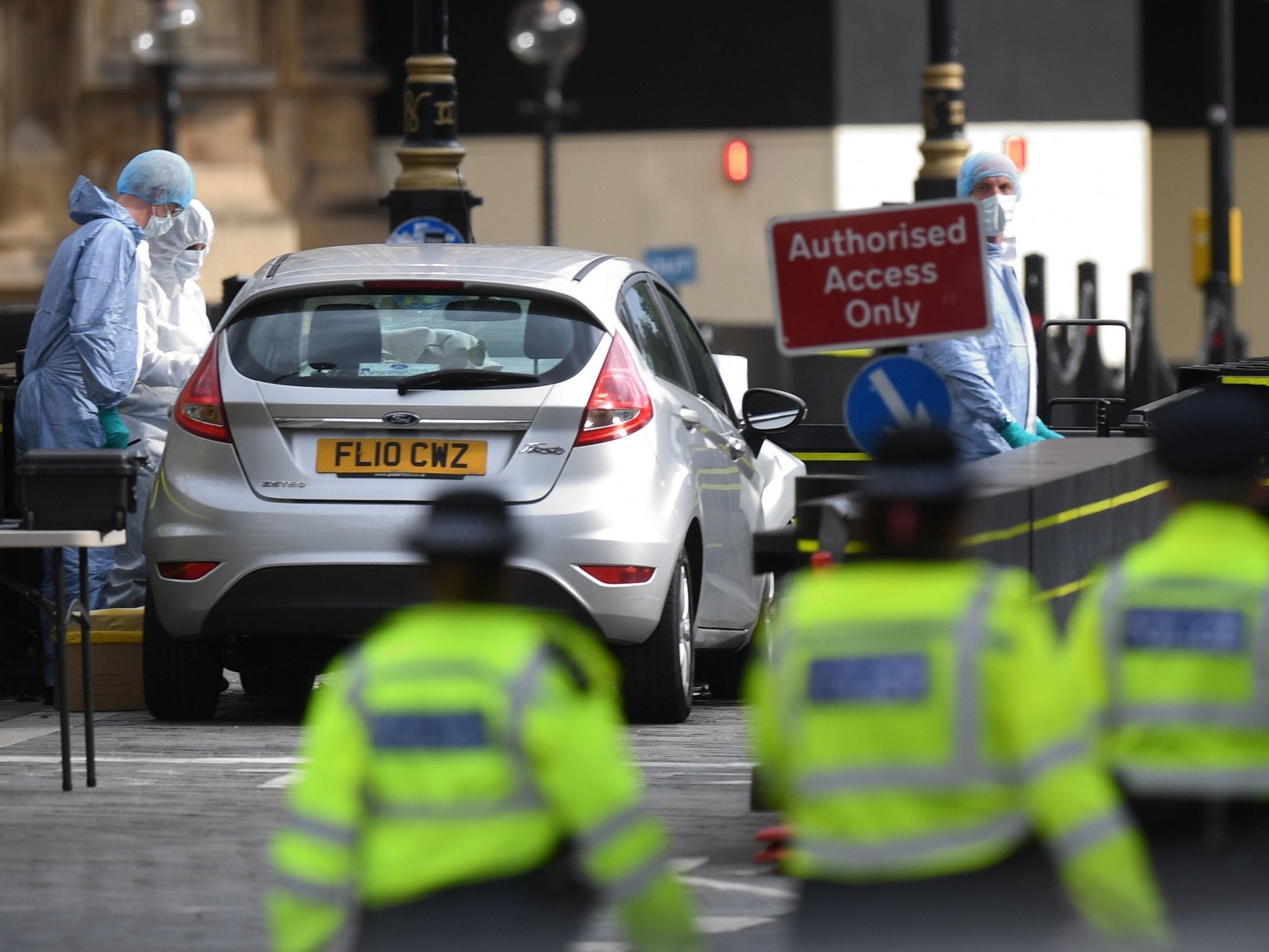Salih Khater: Birmingham shop manager from Sudan named as Westminster car attack suspect
Police searching properties linked to 29-year-old British citizen in Birmingham and Nottingham
The man accused of launching a terror attack in Westminster is Salih Khater, a British citizen who moved to the UK from Sudan, The Independent understands.
A flat where he previously lived in Birmingham was among three properties being searched by police as they investigate the 29-year-old's possible motivations.
He was “not cooperating” with the investigation overnight and remains in police custody.
Mr Khater describes himself as a shop manager on his Facebook page, where the “about” section reads: “In past I'm great but now I say I don't no [sic]”.
He said he studied at Sudan University of Science and Technology and went to school in Wad Madani, a city south-east of Khartoum.
Mr Khater's page shows a mixture of connections based mainly in Sudan, Birmingham and Nottingham – the two cities that are now the focus of operations by counterterror police.
Investigators are searching his former flat above a row of shops in Sparkbrook, near where the first Westminster attacker Khalid Masood lived.
The area was the home of several terrorists, including UK’s first suicide bomber, its first al-Qaeda plotter, one of one of the financiers of the 9/11 attacks and several extremists who went to fight for Isis.

Police also raided another property in Birmingham and a flat in Nottingham that was said to be rented by several Sudanese men.
No arrests have so far been made in the operations and police are not believed to be hunting for any other suspects over the alleged attack.
Metropolitan Police Assistant Commissioner Neil Basu, the head of UK counterterror policing, said the suspect was not known to MI5 or counterterror police.
He said his team’s current priority was to formally identify the suspect “and establish his motivation if we can – he is not currently cooperating”.
Mr Basu added: “Given that this appears to be a deliberate act, the method and this being an iconic site, we are treating it as a terrorist incident ... no other suspects at the scene have been identified or reported to the police.
“There is no intelligence at this time of further danger to Londoners or the rest of the UK connected to this incident.”
Investigators tracked the path of the silver Ford Fiesta used in the attack to find that it was driven around London for almost eight hours before ploughing into cyclists and smashing into security barriers outside the Houses of Parliament.
Police officers guarding the area had to leap out of the car’s path before armed colleagues rushed to detain the driver early on Tuesday morning.
The vehicle had driven from Birmingham late on Monday and arrived in the capital just after midnight, being potted in the central Tottenham Court Road area – a famous shopping and nightlife district – from 1.25am until around 6am.
It was then driven to Westminster and circled around the Houses of Parliament and Whitehall until the crash shortly after 7.30am.
Footage showed the car sharply swerving through several cyclists and pedestrians, over central reservations and down the wrong side of the road at high speed before crashing into security barriers.
It struck during parliament’s summer recess and ahead of the daily rush of tourists to the area, leaving it relatively deserted.
Three people suffered non life-threatening injuries in the attack, including a man and woman who needed hospital treatment but have since been discharged.
Theresa May vowed that terrorists would “never succeed” in dividing Britain, after Donald Trump took to Twitter to blame “crazy animals” for the attack.
It struck just metres from where Masood stabbed a police officer to death after running down four pedestrians on nearby Westminster Bridge in March 2017, in the first terror attack claimed by Isis in the UK.
Metropolitan Police Commissioner Cressida Dick said the area could be pedestrianised in a bid to ward off vehicle attacks, amid a fresh review of security around the Houses of Parliament.

In the past 17 months, Westminster has been hit by two attacks and was the planned location of four disrupted plots, making it currently the biggest since terror target in Britain.
Ms Dick said: “You will notice that the security around parliament both in terms of armed officers and police officers and physical barriers has been further enhanced over the last several months and there is more to come on that in further months.
”Whether that area outside should be pedestrianised further, there should be further physical works done, I think is a matter that will be discussed no doubt between parliamentary authorities, us, the intelligence agencies and indeed the local authorities and the mayor.“
She said vehicles had “become a weapon of choice” for terrorists, following a spate of similar attacks across Europe.
Isis has issued advice to its followers non how to carry out atrocities using vehicles, knives and other easily obtained items, which have made attack plans faster and harder to spot for authorities.
At a briefing for journalists in Westminster, the prime minister’s spokesman said 13 Islamist and four far-right plots have been foiled since the first Westminster attack in March 2017 – an average of one a month.
A total of 676 terrorism investigations by MI5 and counterterrorism police were underway by the end of June this year, up from around 500 just four months before.

